For several years we have had the privilege of arranging and taking the Mincha service for YK afternoon. In the early days we were ably assisted by many of the post-bar/batmitzvah group, and in recent years we have incorporated a study session as part of the service.
Obviously, this year things need to be done somewhat differently, with the hope that this will encourage many of you to participate in a service that is often only sparsely attended – see below.
We will, however, follow the basic structure for the service; including two key components – reading the portion from Nitzavim and with a special presentation of the Haftarah: The Book of Jonah.
We also want to include a discussion session with some element of participation. We have decided to facilitate this by circulating a brief set of ideas and questions relevant to the two readings, and to our current circumstances. Our hope is that people will respond to this with their thoughts and with ideas that they wish to raise. Please send these to us as emails and we will make a selection to incorporated into the study session, and to which we will try to respond.
Contributions should be brief, so that they can be read out and displayed during the session. Contributors can request that their name not be mentioned if their contribution is included.
Nitzavim: some areas for consideration and discussion
Part of the section we read – verse 19 – states that
I have set before you life and death, blessing and curse.
Choose life, so that you and your offspring/descendants will live.
In fact, some translations don’t just offer the choice – choose life – but make it into a command ‘You shall choose life’.
How might this be understood in the midst of the COVID-19 pandemic?
- The confusion and disagreement around wearing a mask – why has this become such a contentious issue?
- The argument that depriving children of schooling does far more damage to their life chances and development than the virus inflicts on them, or those around them who are more vulnerable to its dangers than the children themselves
- The strategy to develop a herd immunity – essentially allowing the virus to proliferate in the hope that a sufficient proportion of the population will recover and consequently develop immunity to the virus. Is this a form of ‘choosing’, and if so, who does the choosing and on what basis?
- The pandemic comes on top of the accelerating increase in the impact of climate change. How could and should we balance strategies dealing with each? For instance, the massively increased production of PPE leads to increased plastic waste and a huge drop in recycling; avoiding public transport results in increased use of private cars.
Jonah: some areas for consideration and discussion
The Book of Jonah can be understood as a case study in both personal responsibility and trying to evade responsibility. Jonah fears what will happen to him should he obey the instruction to go to Nineveh and give them God’s call to repent and warning if they do not. Then Jonah appears dismayed when the people of Nineveh do actually heed the warning and repent and change their ways.
A contemporary retelling of Jonah might centre on him being given the task of travelling to a community to warn them of the impending pandemic. They must adopt new forms of social and personal behaviour, including rigorous hygiene procedures, social distancing and wearing face masks. They must stop partying and practice new forms of interacting. Not only is Jonah unwilling to do this, but when he finally does so his message is not welcomed, as it was in Nineveh. Instead he is faced with enormous hostility from those who question the basis of the warning, disputing the evidence upon which it is founded, even accusing Jonah of being part of a massive conspiracy. While the book ends with the lesson of God’s compassion for all that lives— human and non-human – Jonah’s discomfort might be telling us about our desire for retribution rather the general good.
- How should people respond to such challenges?
- Although the ways in which ‘the science’ around the pandemic has been challenged is disconcerting and alarming, would it have been equally unsettling had everyone immediately kowtowed (we use the term deliberately) to the directives coming from those in authority?
- The Book of Jonah opens with the words ‘And the word of the Lord came to Jonah’. But how did this happen? How did Jonah know who was communicating with him? What about the many contemporary preachers who claim that COVID-19 is a divine punishment, an 11th plague?
One recurring concern is that this deepest part of Yom Kippur’s grand drama, Mincha, with its powerful Torah portion and fascinating, provoking and profound story of Jonah, is often the least well-attended. People disperse to return for Yizkor. We do hope you will join in for Minchah and share with us your thoughts about the Portion, the Haftarah and our world as we listen to the call for reflection in these difficult, anxious and strange times.
Tony Bryant & Griselda Pollock
Email –

